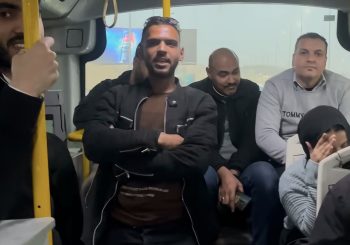UN Secretary-General Antonio Guterres invoked Article 99 of the UN Charter, allowing him to bring to the attention of the Security Council the war on Gaza, which Guterres deemed a threat to the maintenance of international peace and security, on Wednesday, 6 December.
This rare move aims to expedite action by the UN Security Council to address the deteriorating humanitarian conditions that Palestinians are experiencing in Gaza.
Article 99 of the UN Charter empowers the Secretary-General to bring matters that threaten international peace and security to the Security Council’s attention. Also, the article serves a preventative function, raising international awareness of severe crises that could escalate further.
The war on Gaza has the potential to draw in neighboring countries and regional powers, including Lebanon, Syria, Iraq, Iran, and Yemen.
The invocation of Article 99 by the UN Chief is a rare occurrence, signaling the seriousness of the crisis. It was the first time Guterres used it since his tenure as UN chief began in 2017, and is a powerful tool to mobilize UN action.
The failure to invoke Article 99 during the 1994 genocide in Rwanda remains etched in the international community’s memory.
Guterres emphasized the urgent need for a humanitarian ceasefire and highlighted the collapse of the Palestinian healthcare system and the lack of protection for civilians in Gaza, in a post on X on 6 December.
He warned that the current situation makes it impossible to conduct meaningful humanitarian operations, further exacerbating the suffering of the population.
As the situation intensifies, the international community faces increasing pressure to take decisive action. The United States, in particular, has been facing increasing pressure to take a firmer stance on Israel’s indiscriminate military campaign.
US Secretary of State Antony Blinken announced on Tuesday, 5 December visa restrictions on extremist Israeli settlers involved in attacks against Palestinians in the West Bank.
The Conflict So Far
After a surprise attack conducted on 7 October by Hamas on a number of southern Israeli towns which resulted in the deaths of an estimated 1,200 people and more than 220 being taken hostage by Hamas, Israel launched a retaliatory bombing campaign against what it describes as ‘terrorist targets’ in the Gaza Strip.
Over 15,899 Palestinians have been killed in the Gaza Strip — including at least 6,600 children — and over 41,316 others injured. Meanwhile, at least 259 Palestinians have been killed in the West Bank and at least 3,365 have been injured.
The priority of the Egyptian government since the beginning of the conflict has been deescalation and the securing of a path for aid to enter the Gaza Strip through the Rafah crossing. Israel bombed the crossing at least six times, and limited aid trucks have crossed to Gaza so far, which UN officials warn is insufficient amid dire humanitarian conditions.
Most Western countries, with the United States at the forefront, have expressed unconditional support for Israel, despite the steadily rising death toll in Gaza. Meanwhile, the United Nations General Assembly has issued a resolution calling for a ceasefire.







Comments (2)
[…] vote followed a rare formal warning from U.N. Secretary-General Antonio Guterres on 6 December regarding the global threat posed by the […]
[…] post UN Chief Invokes Article 99 to Address Gaza Crisis and Urges Humanitarian Ceasefire first appeared on Egyptian […]